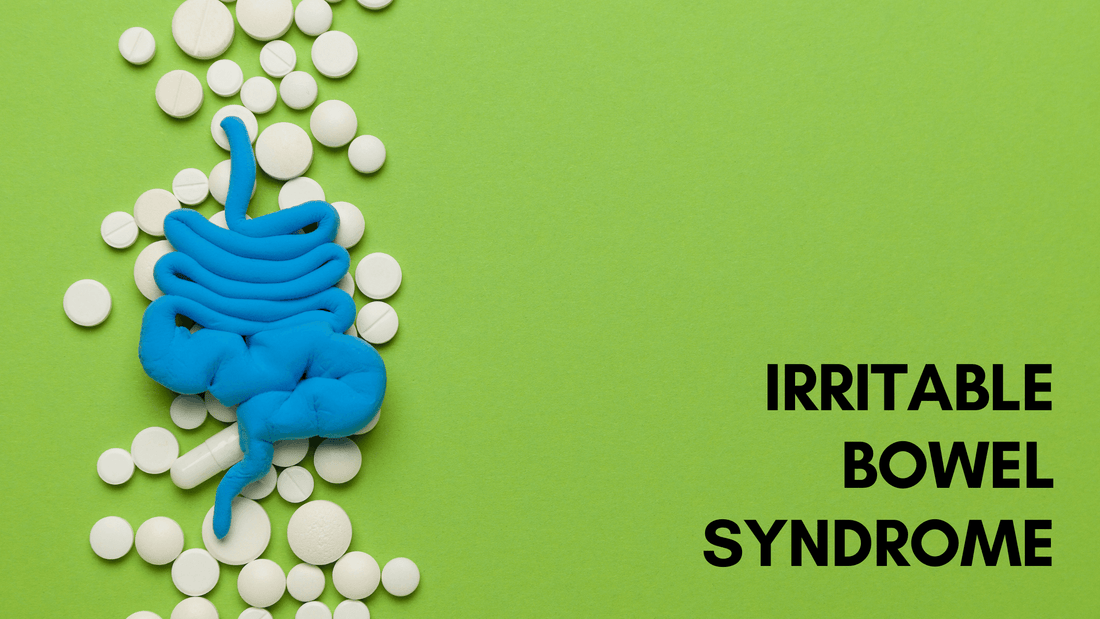
Best and Worst Foods for Irritable Bowel syndrome
Naturally YoursShare

Irritable bowel syndrome involves changes in frequency or form of bowel movements accompanied by lower abdominal pain. It is a mix of belly discomfort or trouble with bowel habits: either going more or less often than normal with different kind of stools. It can be episodes of diarrhea or constipation.
However, triggers are different for everyone, making it really difficult to identify specific foods or stress inducing factors that everyone with the disorder should avoid. To put in a single frame, Diet, stress, poor sleep and changes in gut bacteria may trigger all symptoms.
Why this irritable bowel syndrome?
Improper brain-gut interaction- how your brain and gut work together can be a major cause. In such people, food may move too quickly or too slowly through the digestive tract.
Other triggers include
- Stress like physical, mental or sexual abuse.
- Bacterial infection in your digestive tractor stomach flu
- Small intestinal bacterial overgrowth
- Food sensitivities or intolerances caused by poor absorption of sugars or acids in food.
- High protein diets
- Certain antibiotics and anti-depressants
- Eating too fast
- Not chewing food properly specially while driving or working
Symptoms of IBS

The most common symptom of irritable bowel syndrome (IBS) is pain in your stomach and changes in bowel movements, can be diarrhea or constipation. Other symptoms include
- Feeling of incomplete bowel evacuation
- White mucus in stools.
- Abdominal bloating and cramps- Caused due to excessive gut muscle contractions
- Frequent gases- Intestinal gut of people with IBS is less able to tolerate and transport gases which makes the person gassier.
- Belly that sticks out
- Mucus in stools
- Tiredness
- Anxiety and Depression
- Headaches
- Polyuria
- Unexplained weight loss
These symptoms are usually relieved by bowel movements. Women with IBS may have more symptoms during their menstrual periods.
Medical intervention is important in the treatment of IBS, but do you know that certain well-planned diets may improve your symptoms?
What should I eat??
- High fibre foods- To some extent can relieve the symptoms, but it may also worsen some symptoms like bloating or gas. So, it is recommended to gradually increase fiber intake
- Loads of water
- Low fat foods
- Probiotics- Found in curd and buttermilk are known to relieve the symptoms
- Aloe vera juice
- Fruits like bananas, grapes, berries, apple, oranges, pineapple
- Prefer a low FODMAP diet as it involves eliminating and reintroducing phases. Less gas forming and low FODMAP foods like carrots, celery, brinjal, pumpkin, spinach
- Healthy seeds like pumpkin seeds, sesame seeds and sunflower seeds.
- Certain lifestyle changes like small and frequent meal and Yoga
- Prefer eating food slowly. Cut down distractions if any
What should I avoid?

- Dairy products like milk, paneer, cheese as IBS symptoms are similar to lactose intolerance
- Gas forming foods like cabbage, broccoli, beans, cauliflower, legumes, sprouts. Prefer eating soaked beans or lentils to improve your body’s ability to digest them more easily. Also try roasting or sautéing broccoli and cauliflower if consuming them raw bothers you gut.
- Avoid consuming food kept outside for long hours. Food should be heated and cooked properly
- Fried foods- High fat diet may be especially hard on the system for people with IBS. Frying food can change the chemical makeup of the food, making it more difficult to digest which causes more discomfort.
- Caffeine- People swear by their morning coffee for digestive regularity. However, Coffee, sodas and energy drinks containing caffeine can be triggers for IBS.
- Artificial sweeteners- They contain sucralose, aspartame and acesulfame potassium which is hard for your body to absorb specially if you have IBS. They further cause gases, abdominal pains and laxative effects. So always prefer reading food labels before shelling out money on those sugar free products.
- Chewing gum or drinking liquids with straw
- Alcohol- Limiting alcoholic drinks and those cocktails may help you reduce IBS symptoms. But if you choose to drink a little, consider a gluten free drink mixed with plain water or coconut water without any added sugar or sweetener.
- Processed foods- Processed foods like chips, frozen snacks, Ready to eat and Ready to cook foods as they contain lot of added preservatives, salt, sugar and fats. Indulging too much on these foods is like inviting lot of health problems and might trigger IBS flare-ups. A research by BMJ 2019; 365 doi found that eating 4 servings of ultra-processed foods per day is linked with IBS.
So, prefer entering into your kitchen when hungry, exploring your cooking skills and eating that home cooked healthy food for a healthy gut!!
The take-a-way
Digestion and food triggers vary from person to person. Some foods can be tolerated by an IBS person, while some may not. Keeping a food and symptom diary will always help to learn which foods make you feel the best and limit those foods which cause uncomfortable symptoms
ABOUT THE AUTHOR

Sneha Jain, Dietician
Sneha is a Post graduate with specialization in Nutrition and Dietetics. She is a university topper and holds 5+ years of experience in Apollo hospitals, VLCC, slimsutra and first cry fit-kids . She has successfully counselled clients all over India for weight loss, weight gain, diabetes, hypertension, PCOD, hypothyroid, Pregnancy and lactation and growth charts for children. She has her own diet consultation e-clinic (diet_diariez)
She believes in customized diets and eating local and seasonal foods. Her counselling not only involves diet planning, but also lifestyle modification and stress relief strategies.
